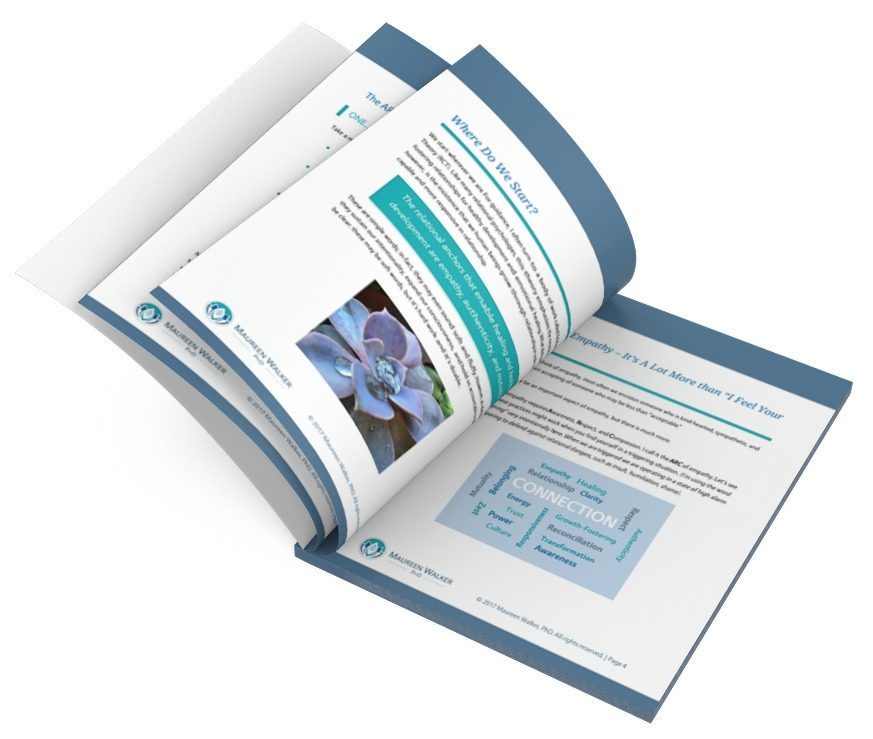It’s finally fa-la-la-la-la time, and I couldn’t be more ready. Every year as soon as December rolls in (and not a minute sooner), I crank up the holiday music. However, this is 2020, a year in which everything is subject to deconstruction, even the iconic little, red-nosed reindeer. It’s not that I have something against Rudolph; first of all, I know he isn’t real. I’m not even bothered by the coda promising Rudolph an honored place in history. I’m bothered that Rudolph epitomizes history, at least the history as told by the winners of power-over politics.
Rudolph, the red-nosed reindeer
Had a very shiny nose.
It’s just a fun children’s song, you say? Well, bear with me for a few minutes; I promise we can enjoy our holiday music and a little cultural scrutiny at the same time. In fact, our days may be merrier and brighter when we tune into the messages that seep into our consciousness along with the sprightly melodies. So, allow me to make just three quick points about the power-over politics of reindeer games.
And if you ever saw it,
You would even say it glows.
First, clearly, there are “better than” and “less than” reindeer. (Another word for “better than” might be “normal”.) Because of his shiny red nose, Rudolph obviously belongs in that “less than” group. I say “obviously” because his exclusion is normalized. The song even insists that anyone (subtext: a normal person with common sense) would look at his glowing nose and find him flagrantly “diverse”. It’s no wonder that the other reindeer shame him and refuse to play with him.

All of the other reindeer
Used to laugh and call him names.
They never let poor Rudolph
Join in any reindeer games.
Second, Rudolph seems to belong nowhere, wandering aimlessly and sadly around the North Pole with no community to affirm that he mattered. The fact that there are no friends or family that we can see is a cultural-literary artifice that Toni Morrison called natal isolation. Natal isolation is essential to power-over politics because it (a) sets up the serviceability of the “less than” group. Having no empowering community of his own, Rudolph is available and ever-ready to serve his former tormentors. Further, natal isolation entitles the “better than” group to determine to set the terms and conditions of inclusion, value, and dignity. In other words, the “better than” group gets to determine when, why, and how much value the “less than” group can enjoy.
The one foggy Christmas Eve
Santa came to say,
“Rudolph, with your nose so bright
Won’t you guide my sleigh tonight?”
Furthermore, even good old Santa Claus didn’t seem to respect hapless little Rudolph until he needed a high-powered GPS. (You might notice Santa never reprimanded Dasher and the gang for their abusive behavior; for all we know, he just expected them to “stand back and stand by”.)
Then how the reindeer loved him
As they shouted out with glee:
“Rudolph, the red-nosed reindeer,
You’ll go down in history!”
Third, Rudolph (like any dutiful member of a “less than “group) justifies his existence by providing extraordinary service to the “better than” group. He is magical! What’s more, he redeems the “better than” group in the process; they become nicer reindeer because of him. Of course, Rudolph’s redemptive suffering is no exception. Again, I get it that he is not real or human, but he does exemplify the literary trope of the magical Negro. (Unlike our little storybook character, real, live human beings get entrapped inside this power trope.) So long as the non-diverse reindeer look good and behave better in the end, his suffering was not in vain. Okay, so maybe there is some moral lesson embedded somewhere in the story. Perhaps children might learn to be nice to others if only for utilitarian purposes: you never know when you might need them.
Okay, that’s it for #deconstruct in 2020. My hope for 2021 is that we will deconstruct, defund, and disavow abuses of power whenever and wherever our culture normalizes it. In 2021, let us remember that abusive power is never more dangerous and seductive than when it hides in plain sight. Meanwhile, we can crank up the holiday music and get back to fa-la-la-la-la. If your taste runs toward alternative vibes, check out Jack Johnson’s take on the saga of our beloved little reindeer. If you enjoy funk-jazz fusion, Mary J. Blige can take you on a fun ride with Rudolph. If like me R & B grooves make your holiday happy, let’s rock with the soulful sounds of the Temptations!
Happy Holidays!




Hi Maureen: Glad to see this, thanks for sharing. Honestly, never thought of it, but it made me think of the 70s when we were deconstructing children’s books such as The Three Little Pigs and Curious George. It is a little bit heartbreaking, but there is no quarrelling with what you say.
Merry Christmas and to a better 2021.
Betty Allen
Betty,
Thank you! We think of you and Irv often, and we deeply appreciate your encouraging words. Happy holidays and sincere best wishes for a hope-filled new year!
Maureen
WOW. Powerful. Insightful. Challenging! I will never listen to the ‘Rudolph song’ the same way again—and that’s a good thing! THANK YOU Maureen! (Now on to The Temptations!!)
now that’s beautiful deconstruction with a warm scalpel.
thanks maureen for illuminating that red nose, from the inside.
nick